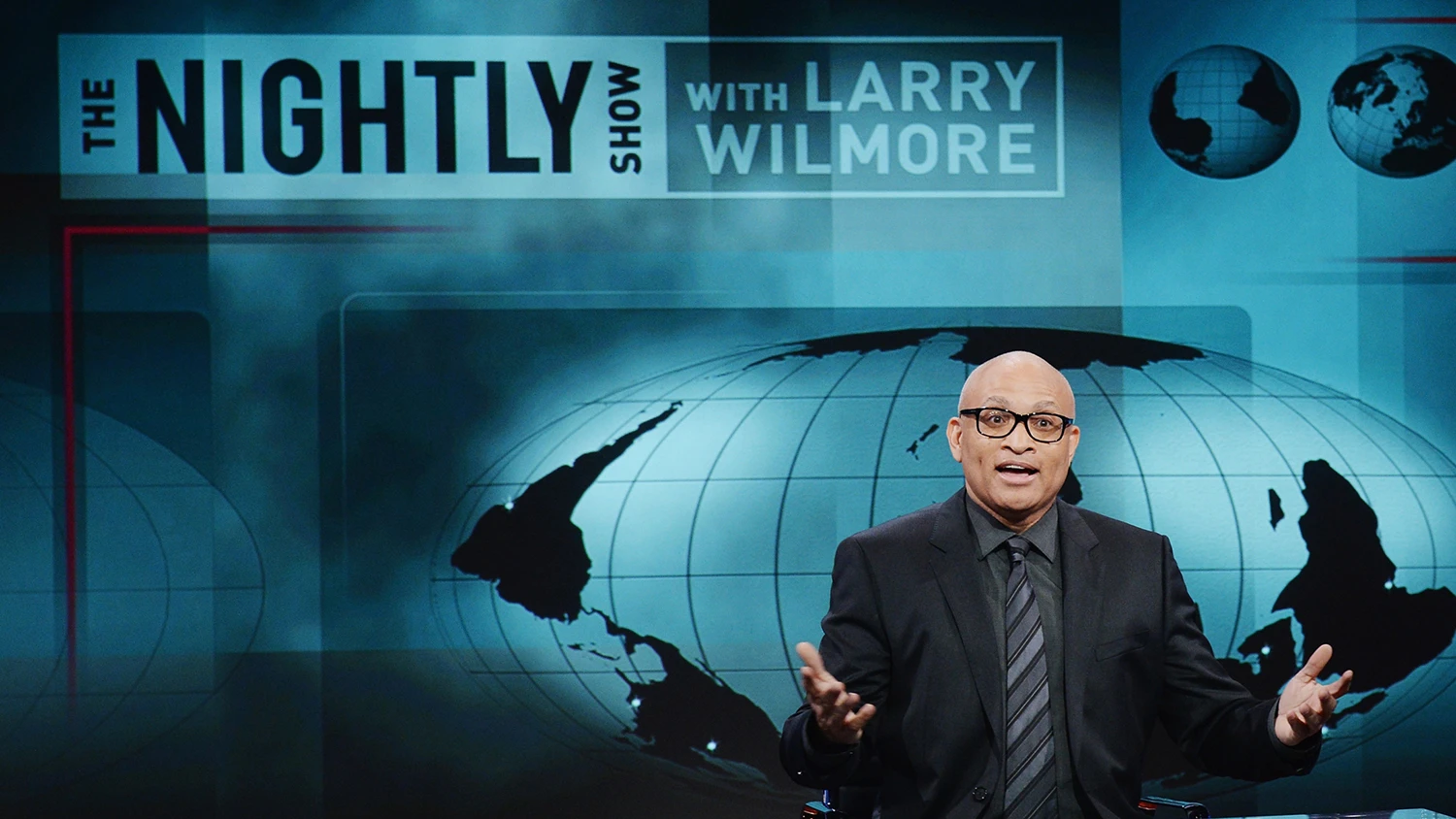Master of None, which just returned for an impeccable second season, is a stylish, studied comedy about identity, self-discovery, and the winding path toward fulfillment. (Not to mention pork and pasta. It’s also about those.) Although the show is an extremely personal expression from creators Aziz Ansari and Alan Yang, its main themes are perfectly reflected in the story of how one of its writers got his job.
Like just about every sentient being with Netflix access in late-2015, Cord Jefferson swooned over Master of None’s first season. He didn’t merely admire the relentlessly tasteful series, though; he thought he might like to write for a show like that one day. What separated him from most other writers in fantasy career draft mode is that he’d gotten himself into just the right position to actually make it happen. Jefferson ended up becoming a staff writer and story editor throughout the show’s second season, with a coveted story-by credit on the “New York, I Love You” episode–a medley of loosely connected vignettes that cohere into an offbeat tribute to the city. He had to write like hell to get there, though.
https://youtu.be/tGE-Mw-Yjsk
Jefferson first began attracting attention for his writing on sites like The Root, and later as an editor for Gawker. He was a journalist who also wrote searing essays–often about the black American experience–from both a general and intensely personal perspective. While his writing revealed untold depths of self-knowledge, Jefferson had not yet architected a vision for his next stage as an author. He had no secret pilot script to plug away on at night, nor a dusty, half-finished novel beckoning for closure. Mainly, he was just trying to stay afloat in the years before Gawker went belly-up.
“For a long time my only ambition with regard to writing was to continue finding people who would pay me to do it,” he says. “There was a significant period of my life when success to me was making enough money writing that I didn’t have to ask my parents for rent money.”
He’d watched friends hit high watermarks in their fields and worried that true success was eluding him. Gradually, the desire for something more metastasized. He’d always had the idea that he would end up dabbling in many different mediums, the way some of his writer heroes like James Baldwin and Joan Didion had, but he wasn’t sure where to even start.
Then everything changed rather quickly.
In the summer of 2013, Jefferson wrote a piece of satire for Gawker about a melee at a surfing competition–a faux-handwringing exegesis on the “culture of white violence.” The post, which mocked the hypocrisy of certain media coverage of black culture, made the rounds online that day. Among its many admirers was Chris Hayes, who invited Jefferson on his MSNBC show, All In, to do a desk piece based on what he’d written. He crushed it, his deadpan delivery piercing the piece’s target even more savagely.
Just as Aziz Ansari’s character Dev playfully wrestles with identity in episodes like “Religion” and the first-season standout, “Parents,” Jefferson’s cultural introspection turned out quite entertaining. The clip of his All In appearance went viral, eventually finding its way to Jermaine Johnson, a manager at 3Arts Entertainment. Johnson was impressed; the next day, he asked Jefferson to meet for coffee.
When an agent or manager invites a writer out for coffee, it might be the beginning of a big break or it might be nothing at all. Jefferson was going to do whatever it took to avoid Option 2. Johnson convinced him he should be writing for TV, and that if he didn’t have a spec script stashed–which he did not–he’d better get cracking.
About six months later, Jefferson had a pilot script in hand. It was a veteran story centered around a military clergyman. Not exactly the debut script one might expect from a future comedy writer. Before he even had the chance to seriously shop it around, however, he caught another big break–this one even more out of the blue.
Former sitcom star-turned-showrunner Mike O’Malley was looking for writers for a series he was putting together with LeBron James, of all people. O’Malley was a recent fan of Jefferson’s writing who reached out to his literary agent on a whim. Shortly after another fateful coffee in LA, this time with O’Malley, Jefferson had a legit TV writing job offer. It would be a 13-week stint helping create the pilot for what would end up becoming Survivor’s Remorse–a show that is now closing in on its fourth season. The offer came in on a Friday, and it required Jefferson to turn up at the writer’s room the following Monday. After some quick deliberation, he gently let the editor-in-chief at Gawker know he had to leave suddenly to go see about a once-in-a-lifetime opportunity.

If Jefferson’s opportunity seemed to arrive suddenly, it also ended just as quickly. After 13 weeks of creatively challenging work writing the first season of Survivor’s Remorse, Jefferson was freshly out of a job. He didn’t last that way for very long, though.
After a spirit-testing summer interviewing for TV writing gigs with all the major studios, Jefferson was nearly ready to go back into journalism. Then his agent got him an interview with Rory Albanese, late of The Daily Show. Within two months, Jefferson was moving to New York to help launch the the replacement for The Colbert Report. He was the first writer hired for what ended up being The Nightly Show with Larry Wilmore.

“Anyone who’s ever been part of a late-night show will tell you it’s exhausting work no matter what, but we had the added labor of trying to figure out what the show was going to be, what the tone was going to be, what our recurring bits were going to be, who our recurring characters were, etc.–all while producing a show every day,” Jefferson says. He adds, “I once saw a motivational poster that said, ‘Entrepreneurship is jumping off a cliff and trying to build a plane on the way down.’ I hate to quote some dumb motivational poster, but that’s what it felt like sometimes.”
The Nightly Show is where Cord Jefferson came into his own as a TV writer. It was a stress factory, pushing the novice toward the top of his wit and intellect without relying on formulas as a crutch–and then having to do it all again the next day.
“I had to learn how to do everything very quickly in order to not get left behind,” he says.

By the time Master of None went fishing for talent, Jefferson had completed two comedy spec scripts and had a project in development at HBO. He had real material for Ansari and Yang to vet. The pair liked one of his scripts, and Jefferson ended up getting on the phone with them in March of 2016.
The following month, he was in the writer’s room on one of his favorite recent TV shows.
Although he enjoys his job, and hopes to continue writing TV “for as long as TV is a thing people watch,” Jefferson is now also looking beyond. He’d love to write a book or a movie eventually, and he’s giving serious consideration to penning a stage play centered around a racehorse. Despite having definitively made the leap from Gawker to prestige TV, Jefferson continues to thrive partly fueled by the unshakeable uncertainty that plagued him beforehand. If it’s gotten him to this point, though, perhaps it’s not such a bad thing.
“I’ve felt Impostor Syndrome in every job I’ve ever had in my adult life. I’m feeling it right now, answering these questions,” he says. “But I hope I’ll always choose Impostor Syndrome and overcompensating with extra effort over being a ding-dong who strolls through life with a lot of unearned confidence.”
Recognize your brand’s excellence by applying to this year’s Brands That Matter Awards before the final deadline, June 7.
Sign up for Brands That Matter notifications here.
